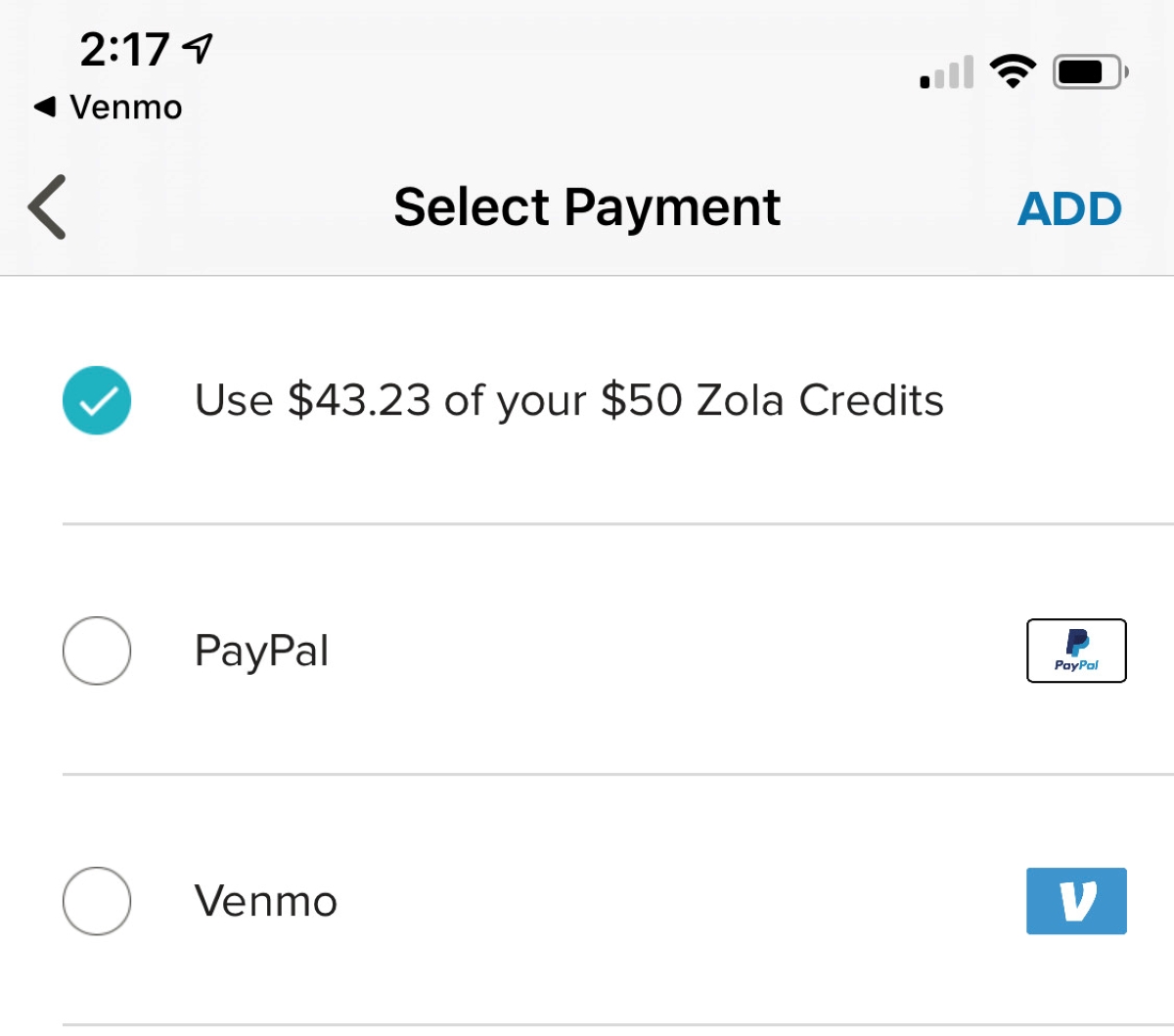

Finance
How To Rent A Place With Bad Credit
Published: January 11, 2024
Learn how to rent a place even with bad credit. Get expert advice and tips on finance to overcome credit challenges and secure your dream rental property.
(Many of the links in this article redirect to a specific reviewed product. Your purchase of these products through affiliate links helps to generate commission for LiveWell, at no extra cost. Learn more)
Table of Contents
- Introduction
- Understanding the Impact of Bad Credit on Renting
- Researching Housing Options
- Finding Landlords Willing to Rent to People with Bad Credit
- Building a Strong Rental Application
- Providing Supplementary References and Documentation
- Negotiating Rental Terms and Conditions
- Exploring Alternative Options for Renting with Bad Credit
- Finalizing the Rental Agreement
- Conclusion
Introduction
When you have bad credit, it can be challenging to find suitable housing, as landlords often conduct credit checks as part of the rental application process. Your credit score is considered an indicator of your financial responsibility, and a low score may be a red flag for potential landlords. However, having bad credit doesn’t mean you’re out of options when it comes to renting a place. With some careful planning and preparation, you can still find a rental property that meets your needs.
In this article, we will explore various strategies and steps to help you rent a place even with bad credit. We will discuss how to mitigate the impact of your credit score, research housing options, connect with landlords willing to rent to people with bad credit, and ultimately secure a rental agreement that suits your financial situation.
While it’s important to note that each landlord has their own criteria and preferences, there are still several tactics you can employ to increase your chances of success. By understanding the implications of bad credit on the rental process and taking proactive measures to build a stronger rental application, you can increase your chances of finding a suitable place to live.
Remember, having bad credit is not the end of the world. Many individuals face similar challenges and still manage to rent a place successfully. It may require some extra effort and patience, but with the right approach, you can find a rental property that accommodates your needs and financial situation. So let’s dive in and explore the various steps involved in renting a place with bad credit.
Understanding the Impact of Bad Credit on Renting
When you apply to rent a property, landlords often conduct credit checks to assess your financial responsibility and determine your risk as a tenant. Your credit history, including your credit score and any derogatory marks such as late payments or defaults, can significantly impact your chances of securing a rental agreement.
Landlords may be hesitant to rent to individuals with bad credit because they perceive them as higher-risk tenants. They worry about potential issues such as missed rent payments, property damage, or eviction. This cautious approach is understandable, as landlords want to protect their investment and ensure a stable rental income.
Having bad credit can limit your housing options, as some landlords may have strict credit score requirements. Properties managed by large management companies or located in high-demand areas may be particularly stringent when it comes to credit checks. However, this doesn’t mean that all hope is lost.
If you understand the impact of bad credit on the rental process, you can take proactive steps to mitigate these effects and increase your chances of finding a suitable rental property. Here are a few key points to consider:
- Higher Security Deposits: Landlords may require a higher security deposit if you have bad credit. This serves as added protection for them in case of potential damages or missed rent payments.
- Co-Signers or Guarantors: If your credit is severely impacted, you may consider having a co-signer with good credit or a guarantor who can assume responsibility for the rent if you are unable to pay. This provides landlords with an added layer of financial security.
- Increased Scrutiny on Rental History and References: When your credit score is low, landlords may place more emphasis on your rental history and references. Providing positive rental references from previous landlords who can vouch for your reliability and responsibility can help offset the concerns about your credit.
- Open Communication: It’s important to be transparent about your credit history when discussing your application with potential landlords. If there were extenuating circumstances that led to your bad credit, such as medical expenses or temporary unemployment, explaining these factors can help landlords understand your situation better.
By understanding the impact of bad credit on the rental process, you can be prepared for the challenges ahead. While it may require additional effort to secure a rental agreement, it’s still possible to find landlords who are willing to work with you. In the following sections, we will explore strategies to research housing options and connect with these landlords.
Researching Housing Options
When you have bad credit, it’s important to be strategic and thorough in your search for rental properties. Here are some steps to help you in researching housing options:
- Define Your Budget: Start by assessing your financial situation and determining a realistic budget for your rent. Consider factors such as your income, expenses, and the amount you can comfortably afford to spend on rent each month. This will help narrow down your search to properties within your financial reach.
- Use Online Rental Platforms: Explore popular online rental platforms like Zillow, Apartments.com, or Rent.com to find a wide range of available rental properties in your desired area. These platforms allow you to filter search results based on your specific preferences, such as location, budget, and property features.
- Consider Private Rentals: In addition to using online rental platforms, explore local classifieds, community bulletin boards, and social media groups to find private rentals. These properties may not be listed on mainstream websites and could provide alternatives with more flexible landlords who are open to renting to individuals with bad credit.
- Seek Local Connections: Reach out to local real estate agents or property management companies specializing in rentals. They may have insights into properties that are not publicly listed or be aware of landlords who are more lenient with credit requirements. Building a relationship with these professionals can be beneficial in your housing search.
- Network with Friends and Family: Spread the word among your friends, family, and colleagues that you are searching for a rental property. They may have leads or connections in the real estate market that can help you find suitable options.
- Attend Open Houses: Attend open houses in your desired neighborhoods to get a feel for the local rental market. This will allow you to assess the property’s condition, speak directly with the landlord or property manager, and ask questions about their rental criteria.
- Consider Location and Property Type: Be open to adjusting your expectations regarding the location and type of property you are looking for. Expanding your search to slightly less popular neighborhoods or considering different property types, such as apartments, condos, or townhouses, can increase your chances of finding a suitable rental.
- Connect with Local Housing Assistance Programs: In some areas, there may be government or nonprofit housing assistance programs that cater to individuals with low credit scores. These programs may have specific rental properties or resources available to help you secure housing despite your bad credit. Research and reach out to these organizations in your area for potential assistance.
By thoroughly researching housing options and utilizing various resources, you increase your chances of finding a rental property that fits both your needs and your financial situation. In the next section, we will discuss strategies for finding landlords who are willing to rent to individuals with bad credit.
Finding Landlords Willing to Rent to People with Bad Credit
When you have bad credit, it’s important to find landlords who are willing to look beyond your credit score and consider other factors when evaluating your rental application. Here are some strategies to help you find landlords who are more open to renting to individuals with bad credit:
- Search for Rental Listings with Flexible Requirements: Look for rental listings that explicitly state they are open to tenants with bad credit or have flexible credit requirements. Some landlords understand that credit scores don’t always paint the full picture of a potential tenant’s reliability and may be more lenient in their evaluation process.
- Reach out to Independent Landlords: Independent landlords, especially those who own smaller properties or rental units, may be more open to renting to individuals with bad credit. These landlords tend to have greater flexibility in their decision-making process compared to larger management companies or corporate-owned properties.
- Utilize Local Rental Resources: Contact local housing agencies or tenant advocacy organizations to inquire about any resources or programs available specifically for individuals with bad credit. These organizations may have lists of landlords who are more receptive to renting to tenants with less than perfect credit.
- Work with Rental Agencies: Consider reaching out to rental agencies that specialize in helping tenants with bad credit find suitable housing. These agencies often have established relationships with landlords who are open to working with tenants with lower credit scores.
- Provide Rental References: Gathering positive rental references from previous landlords who can vouch for your reliability can help ease concerns about your bad credit. These references can demonstrate your responsible behavior as a tenant and show landlords that you are capable of meeting your rental obligations.
- Offer a Larger Security Deposit: Landlords may be more willing to overlook bad credit if you offer a larger security deposit. By demonstrating your commitment and financial responsibility, you provide landlords with an added layer of protection and reassurance.
- Consider a Co-Signer or Guarantor: If you’re comfortable with it, having a co-signer with good credit or a guarantor who can assume responsibility for the rent may help alleviate concerns about your bad credit. This provides landlords with an additional layer of financial security and may increase your chances of getting approved.
- Be Honest and Communicate: When discussing your rental application with potential landlords, be honest about your credit history and any extenuating circumstances that may have led to your bad credit. Open communication can help landlords understand your situation better and potentially make them more willing to work with you.
Remember, finding landlords willing to rent to individuals with bad credit may require some extra effort, but it’s not impossible. By utilizing these strategies and demonstrating your commitment and reliability as a tenant, you increase your chances of finding a landlord who is willing to work with you. In the next section, we will discuss how to build a strong rental application to further improve your chances of securing a rental agreement.
Building a Strong Rental Application
When you have bad credit, it’s crucial to present a strong rental application to potential landlords. A well-prepared application can help offset concerns about your credit and demonstrate your qualities as a reliable tenant. Here are some steps to build a strong rental application:
- Organize Your Financial Documents: Gather all the necessary financial documents, including pay stubs, bank statements, and tax returns, to provide proof of your income and financial stability. This helps assure landlords that you have the means to meet your financial obligations.
- Write a Letter of Explanation: Draft a letter that explains the circumstances that led to your bad credit and any steps you have taken to improve your financial situation. Be honest and concise in your explanation, and highlight any positive changes or efforts you have made to rectify any past issues.
- Include Rental References: Collect positive rental references from previous landlords that highlight your responsible behavior as a tenant. These references can vouch for your reliability and help build trust with potential landlords.
- Show Proof of Employment: Provide documentation, such as employment verification letters or recent pay stubs, to demonstrate your stable employment and income. This reassures landlords that you have a reliable source of income to cover your rent.
- Offer Additional References: If you have professional or personal references who can vouch for your character and responsibility, include their contact information as well. This can further strengthen your application and provide additional insight into your qualities as a tenant.
- Highlight Positive Attributes: Emphasize any positive aspects of your rental application, such as a stable job history, a strong rental record, or a commitment to maintaining the property in good condition. These factors can help alleviate concerns about your credit.
- Be Prepared to Provide a Larger Security Deposit: Offering a larger security deposit demonstrates your commitment to fulfilling your rental obligations and provides landlords with an extra layer of financial security.
- Get a Co-Signer or Guarantor: If possible, consider having a co-signer with good credit or a guarantor who can assume responsibility for the rent if necessary. This can give landlords additional reassurance about your ability to fulfill your financial obligations.
- Present a Positive Attitude: When submitting your rental application or meeting with potential landlords, come prepared with a positive attitude. Be respectful, professional, and enthusiastic about the opportunity to rent their property. A positive impression can go a long way in securing a rental agreement.
By building a strong rental application and showcasing your financial stability, responsible behavior, and commitment to being a reliable tenant, you can increase your chances of securing a rental property, even with bad credit. In the next section, we will discuss providing supplementary references and documentation to further strengthen your application.
Providing Supplementary References and Documentation
When you have bad credit, providing supplementary references and documentation can significantly enhance your rental application. These additional materials can help landlords gain a more comprehensive understanding of your reliability as a tenant, beyond just your credit history. Here are some ways to provide supplementary references and documentation:
- Character References: In addition to rental references, consider including character references from individuals who can vouch for your personal integrity, responsibility, and ability to maintain a stable living environment. These references can be from employers, colleagues, community leaders, or trusted friends.
- Proof of Rental Payments: If you have been renting in the past and have consistently made on-time rent payments, consider providing documentation such as bank statements or canceled checks that prove your payment history. This shows landlords that, despite your bad credit, you have a track record of meeting your rental obligations.
- Employment Verification: In addition to the basic proof of employment, you may request a letter from your employer that highlights your job stability, reliability, and ongoing income prospects. This can provide further reassurance to landlords about your ability to pay rent consistently.
- Letter of Recommendation: If you have previously rented from a private landlord or a smaller management company who may not provide formal rental references, consider asking them for a letter of recommendation. This letter can speak to your qualities as a tenant, such as reliability, cleanliness, and adherence to lease agreements.
- Explanation of Credit Issues: Alongside your letter of explanation, consider providing documentation that supports your claims or circumstances related to your bad credit. This can include medical bills, termination notices, or other relevant documents to provide a more comprehensive understanding of the factors that impacted your credit.
- Proof of Financial Stability: If you have experienced a positive change in your financial situation recently, provide documentation to support this. This can include evidence of increased income or reduced debt, such as pay raise letters, bank statements, or records of debt repayment.
- Proof of Savings: If you have significant savings or other liquid assets, consider including this information in your application. This demonstrates your ability to handle any unexpected financial situations that may arise during your tenancy.
- Additional Supporting Documents: Depending on your unique circumstances, you may have other supporting documents to strengthen your application. This can include documents related to your rental history, employment stability, personal achievements, or any awards or recognitions that help portray you as a responsible and reliable tenant.
By providing supplementary references and documentation, you can give landlords a more well-rounded assessment of your qualities as a tenant. These additional materials can help reinforce your reliability, responsibility, and commitment to meeting your rental obligations. In the next section, we will discuss strategies for negotiating rental terms and conditions to make the rental agreement more favorable for you.
Negotiating Rental Terms and Conditions
When you have bad credit, negotiating rental terms and conditions can be an important step in securing a rental agreement that works for both you and the landlord. While landlords may have initial concerns about renting to someone with bad credit, they may be open to negotiating certain aspects of the rental agreement. Here are some strategies for negotiating rental terms and conditions:
- Offer to Pay a Higher Security Deposit: One way to alleviate concerns about your bad credit is to offer to pay a higher security deposit. This provides landlords with an extra layer of financial protection and may increase their willingness to work with you.
- Propose a Shorter Lease Term: Landlords may be more willing to rent to individuals with bad credit if you propose a shorter lease term. This reduces the perceived risk for them and allows both parties to assess the rental situation on a more frequent basis.
- Suggest Automatic Rent Payments: Offering to set up automatic rent payments can provide landlords with peace of mind and ensure consistent and timely payment each month. This demonstrates your commitment to meeting your financial obligations and can help build trust.
- Ask for a Rent Reduction: If you can provide evidence of lower market rental rates in the area or properties with similar features renting for less, you can negotiate for a rent reduction. Landlords may be more willing to lower the rent if they see it is in line with the current market value.
- Discuss a Rent Increase after Proving Your Reliability: If you can demonstrate your reliability as a tenant over a specified period, suggest discussing a potential rent increase after a certain timeframe. This allows the landlord to see your track record and may make them more open to adjusting the terms in the future.
- Offer to Sign a Personal Guarantee: If you have a co-signer or guarantor with good credit, offering to sign a personal guarantee can provide landlords with an added layer of financial security. This guarantees that any outstanding debts or damages will be covered by the guarantor if you are unable to pay.
- Propose a Trial Period: Suggest a trial period, such as a few months, during which both parties can assess the suitability of the rental arrangement. This allows you to prove your reliability as a tenant and gives the landlord an opportunity to see your responsible behavior despite your bad credit.
- Offer to Set Up a Meeting: If you have the opportunity to meet with the landlord in person, it can help build rapport and showcase your qualities as a responsible tenant. Use this meeting to discuss your rental application and address any concerns they may have.
- Show Proof of Income Stability: If you have stable employment and a consistent income, provide documentation or financial records to demonstrate this. Landlords may be more willing to negotiate if they see that you have a reliable source of income.
Remember, negotiation is a two-way process. Be respectful and professional when discussing terms and conditions with potential landlords. By proposing mutually beneficial solutions and showcasing your commitment to being a responsible tenant, you increase your chances of securing a rental agreement that works for both parties. In the next section, we will explore alternative options for renting with bad credit.
Exploring Alternative Options for Renting with Bad Credit
When traditional rental options seem limited due to your bad credit, it may be worth considering alternative options that can still provide you with a place to live. Here are some alternative options for renting with bad credit:
- Roommates: Consider finding a roommate or joining a shared living arrangement. This can help alleviate concerns about your credit since you will be sharing the financial responsibility with someone else. Make sure to set clear expectations and agreements with your roommate(s) to ensure a smooth living arrangement.
- Subletting: Look for opportunities to sublet a room or an apartment from someone who is looking to temporarily rent out their space. Subletting typically involves shorter-term rental agreements and may have more flexible credit requirements.
- Rent a Room in a House: Renting a room in a house owned by a landlord who lives on the premises can be an alternative option. Such landlords may be more interested in your ability to pay rent on time rather than your credit score.
- Private Landlords: Seek out private landlords who may be more willing to work with individuals with bad credit. Private landlords often have more flexibility in their decision-making process and may be open to discussing your situation and considering other factors besides your credit score.
- Local Housing Programs: Research local housing programs or assistance programs specifically designed for individuals with low credit scores. These programs may have rental opportunities or resources available to help you find suitable housing despite your bad credit.
- Rent-to-Own: Explore rent-to-own or lease-purchase options. With these arrangements, a portion of your monthly rent goes towards building equity, potentially leading to homeownership in the future.
- Work with a Housing Counselor: Consider reaching out to a housing counselor who can provide guidance and support in finding alternative rental options for individuals with bad credit. They may have access to resources and programs that can help you secure suitable housing.
- Offer a Higher Security Deposit or Prepay Rent: Providing a higher security deposit or prepaying rent for a few months can help alleviate concerns about your creditworthiness. This shows landlords that you are committed to meeting your financial obligations.
- Improve Your Credit Score: Take steps to improve your credit over time, such as paying bills on time, reducing debt, and addressing any inaccuracies on your credit report. By gradually improving your credit score, you will have more rental options available in the future.
Remember, alternative options for renting with bad credit may require some flexibility and creativity. It’s important to assess and consider each option carefully to ensure it aligns with your financial situation and long-term goals. In the next section, we will discuss the final steps in securing a rental agreement.
Finalizing the Rental Agreement
Once you have found a potential rental property and gone through the application and negotiation process, it’s time to finalize the rental agreement. Here are the final steps to secure the rental agreement:
- Review the Terms and Conditions: Carefully review the terms and conditions of the rental agreement. Pay attention to the lease duration, rent amount, late payment penalties, maintenance responsibilities, and any other clauses or rules outlined in the agreement.
- Seek Legal Advice if Needed: If you have any concerns or questions about the rental agreement, consider seeking legal advice. A lawyer specializing in real estate can review the terms and conditions and provide guidance to ensure your rights and interests are protected.
- Discuss Modifications, if Necessary: If there are any clauses or terms in the rental agreement that you would like to modify for your specific situation, discuss them with the landlord before signing. Be open and honest about your needs and concerns to reach an agreement that works for both parties.
- Ensure Rental Insurance: It is recommended to acquire rental insurance to protect your personal belongings and provide liability coverage in case of accidents or damages in the rental property. Discuss with the landlord if they have any specific requirements or recommendations.
- Document the Condition of the Property: Before moving in, conduct a thorough inspection of the property and document any existing damages or issues. Take photos or videos and provide them to the landlord to ensure you are not held responsible for pre-existing damages when it’s time to move out.
- Sign the Rental Agreement: Review the rental agreement one final time and sign it once you are satisfied with the terms and conditions. Make sure both you and the landlord have a signed copy for your records.
- Pay Required Deposits and Fees: Prior to moving in, pay the necessary deposits, such as the security deposit and any other fees specified in the rental agreement. Keep copies of receipts or records of these payments for future reference.
- Keep Open Communication: Throughout your tenancy, ensure open communication with the landlord. Promptly report any maintenance or repair issues and follow any procedures outlined in the rental agreement. This helps maintain a good landlord-tenant relationship and can lead to a smoother rental experience.
- Meet Your Rental Obligations: Fulfill your rental obligations by paying rent on time, adhering to the terms of the lease agreement, and maintaining the property in good condition. This demonstrates your reliability as a tenant and can help improve your rental history for future references.
By finalizing the rental agreement and adhering to the terms and conditions, you can secure a place to live despite your bad credit. Remember to keep a copy of the signed agreement and other relevant documents in a safe place for future reference. With responsible tenancy, you can create a positive track record and work towards improving your credit score over time.
Now that you have learned various strategies and steps for renting a place with bad credit, you are better prepared to navigate the rental process. While it may require some extra effort and persistence, finding a suitable rental property is possible. By utilizing the tips and suggestions provided in this article, you can increase your chances of securing a place to call home.
Conclusion
Renting a place with bad credit may present certain challenges, but with careful planning, research, and strategic steps, it is still possible to find a suitable rental property. Throughout this article, we have explored various strategies and steps to help you overcome the barriers posed by bad credit and secure a place to live.
Understanding the impact of bad credit on the rental process is crucial. It allows you to anticipate potential concerns and take proactive measures to mitigate these effects. By researching housing options and seeking landlords who are willing to rent to individuals with bad credit, you can expand your chances of finding a receptive landlord.
Building a strong rental application is another key component. By organizing your financial documents, providing rental references, and offering supplementary references and documentation, you can showcase your reliability as a tenant and increase your appeal to potential landlords.
Negotiating rental terms and conditions allows you to find a middle ground that works for both you and the landlord. Offering a higher security deposit, proposing shorter lease terms, or discussing other mutually beneficial arrangements can demonstrate your commitment and willingness to meet your financial obligations.
If traditional rental options prove challenging, exploring alternative options such as roommates, subletting, or renting from private landlords may provide viable alternatives. Being open-minded and flexible can lead to successful rental arrangements despite bad credit.
Ultimately, finalizing the rental agreement is the culmination of your efforts. By carefully reviewing the terms and conditions, seeking legal advice if necessary, and maintaining open communication with the landlord, you can ensure a smooth rental experience.
Remember, the journey to finding a rental property with bad credit may require persistence and patience. It is important to remain proactive, honest, and responsible throughout the process. Take steps to improve your credit over time and establish a positive rental history as you move forward.
While renting with bad credit may present initial challenges, it is important to recognize that many individuals have successfully navigated this process. By utilizing the strategies and steps outlined in this article, you can increase your chances of finding a suitable place to call home, regardless of your credit score.
So, don’t let bad credit hinder your housing goals. Take the necessary steps and explore the options available to you. With determination and careful planning, you can find a place to rent and move forward on your path towards financial stability and a brighter future.














